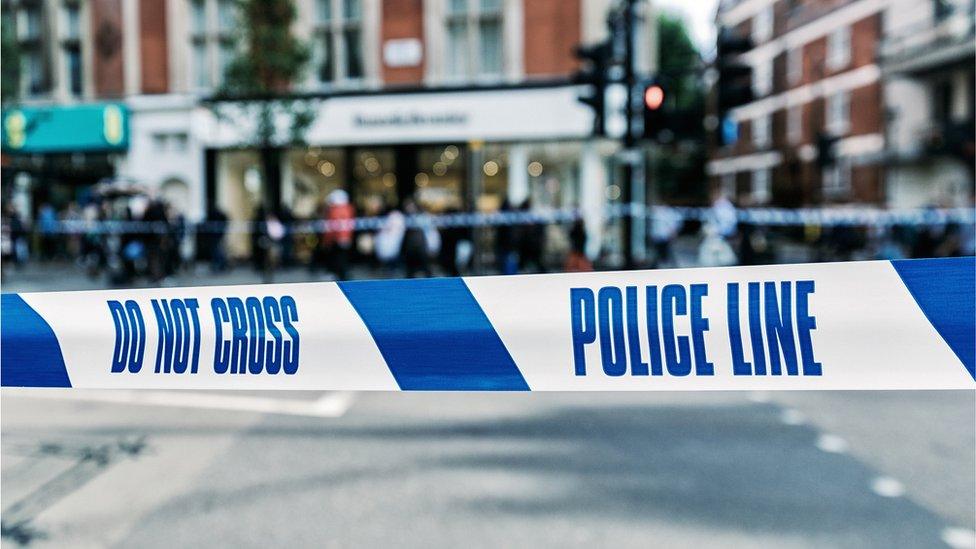Amber Rudd: Target child drug runners to tackle violence
- Published
- comments
London violence: Mother of murdered teen in tears over his death
Gangs that recruit children as drug couriers will be targeted by a government strategy aiming to cut violent crime in England and Wales.
The home secretary said it would also focus on the online "glamourisation" of crime and supporting young people.
Amber Rudd said there was a "strong link" between the illegal drugs market and rising violence.
However, a leaked Home Office document linked the rise to falling police officers.
It said a lack of resources and fewer people being charged may have "encouraged" offenders to commit crimes.
But Ms Rudd said it was a "mistake" and a "disservice" to communities and families to blame police numbers alone.
The new strategy comes amid concerns following the deaths of more than 50 people in violent attacks in London since the start of the year.
Part of the government's £40m Serious Violence Strategy, external will include:
Exploring the legal responsibility of social media firms
Implementing more ways to flag inappropriate material online - specifically on video platforms
Establishing new partnerships within the community to ensure young people get support at a local level
Some will be given early access to a scheme which promotes employment and provides work experience opportunities
‘I was a teenage drug runner’
Ms Rudd said the plans would also focus on early intervention and tougher law enforcement.
The strategy, which was first outlined last year, will target so-called "county lines" drug distribution, where city gangs courier heroin and crack cocaine to rural or coastal towns.
The gangs use children as young as 12 to traffic drugs, using dedicated mobile phones or "lines".
"The evidence is we're seeing a different approach to drug dealing, a different approach to using children in the most disgraceful way as drug dealers," Ms Rudd said.

Analysis
By BBC home affairs correspondent Danny Shaw
The 114-page strategy document contains an impressive level of analysis on the way illicit drugs may be driving serious violence, an apparent shift towards younger offenders and the importance of early intervention.
But there is a huge gap.
There is no mention of police resources or the cuts that have left forces across England and Wales with 21,000 fewer officers and 7,000 fewer police community support officers than in 2010.
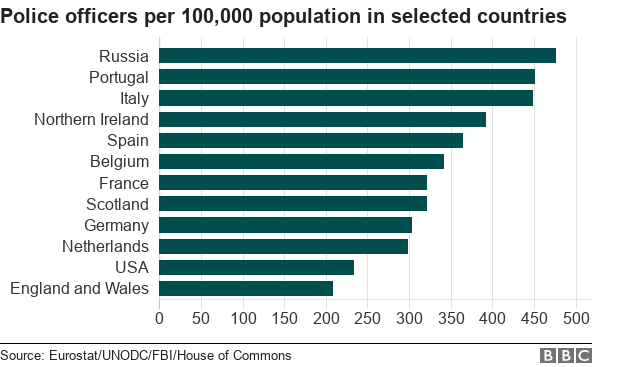
The document hints at the problem - police are catching proportionately fewer robbery suspects despite rising levels of the crime - but does not say why.
Given that a leaked Home Office analysis suggested that a lack of resources may have "encouraged" offenders to commit robbery, the assumption is that this was a deliberate omission.
The result is that it undermines the credibility of the rest of the strategy.

Under the plans, £3.6m will go to a national county-lines coordination centre to gather "vital intelligence" about illegal drugs markets.
And £11m will be spent on an "early intervention youth fund" to help young people at risk of getting involved in violence.
A new Offensive Weapons Bill includes new proposals on the carrying of knives and acid.
It includes:
Restrictions on online sales of knives - preventing them from being posted to residential addresses
It would also become illegal to possess in private certain weapons such as zombie knives and knuckle-dusters
A ban on the sale of the most dangerous corrosive products to under-18s
A consultation on extending stop-and-search powers to enable the police to seize acid from people carrying it in public without good reason
Making it an offence to possess a knife on a further education premises
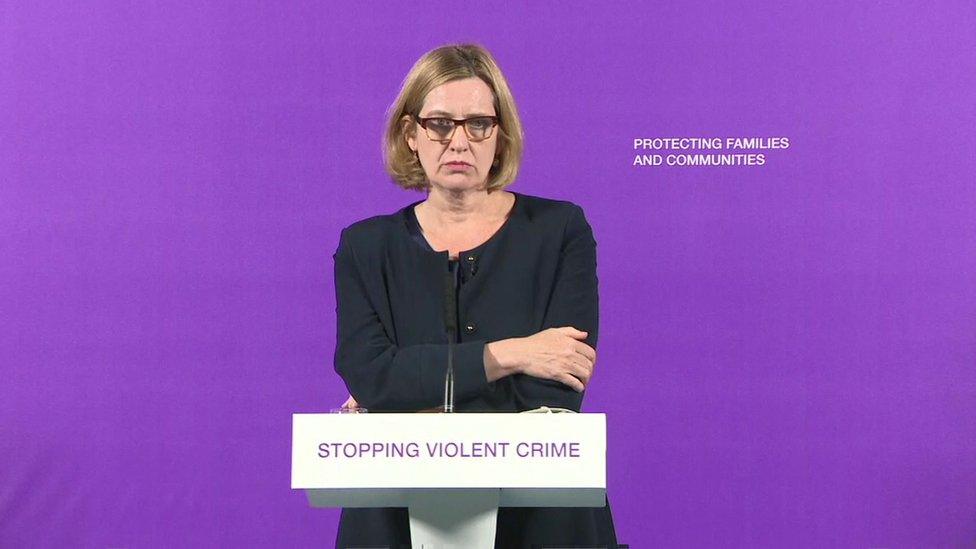
Ms Rudd emphasised the government's determination to halt the rise in violence
Ms Rudd said the government would also tell social media companies to do more to remove violent gang content.
She also announced a cross-party taskforce, which would involve MPs, police and local communities, to tackle serious violence, as well as hold an international symposium on what drives violent crime.
The leaked document from February notes that forces have faced greater demand since 2012 due to an increase in recorded sex offences while during the same time officer numbers have fallen.
It says this pressure on resources had not been the "main driver" for the shift but has "likely contributed".
The analysis added forces with the largest fall in officer numbers did not see the biggest rise in serious violence.
The government dismissed the claim but said it did not comment on leaked documents.

Are police numbers falling?
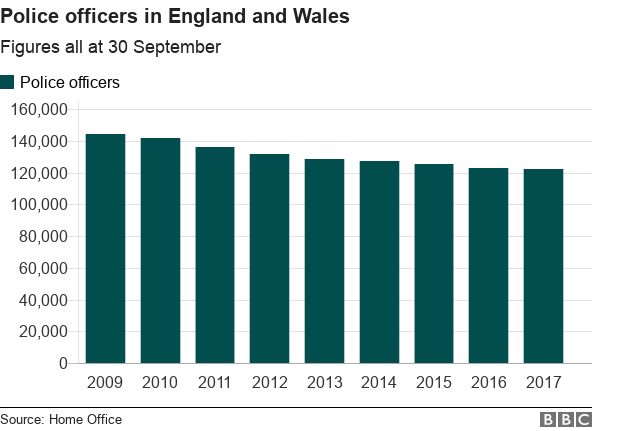
Across England and Wales, the number of police officers fell by 14%, to 121,929, between September 2010 and September 2017, according to the Home Office, external.
It said that out of 43 territorial police forces in England and Wales, 25 recorded falls in police numbers in the year to 30 September.
Some of the biggest falls were recorded in the West Midlands (-4.1%), Thames Valley (-2.9%) and the Metropolitan Police (-2.9%).
The Met, which has more than 30,000 officers, saw officer numbers fall by 922 over the year.

Labour leader Jeremy Corbyn said the government had "decimated" local services, adding that "cuts have consequences".
Speaking at the launch of Labour's local election campaign in London, he said: "Today's leaked documents make a nonsense, an absolute nonsense, of the Tories' repeated claims that their cuts to police numbers have had no effect."
The Local Government Association said it supported tackling crime by involving young people and communities but admitted it would be a challenge to sustain this success.
"Councils are still waiting to receive their youth justice grant allocations for 2018/19. This is vital funding used to support young people and help keep them away from criminality in the first place."
- Published8 April 2018
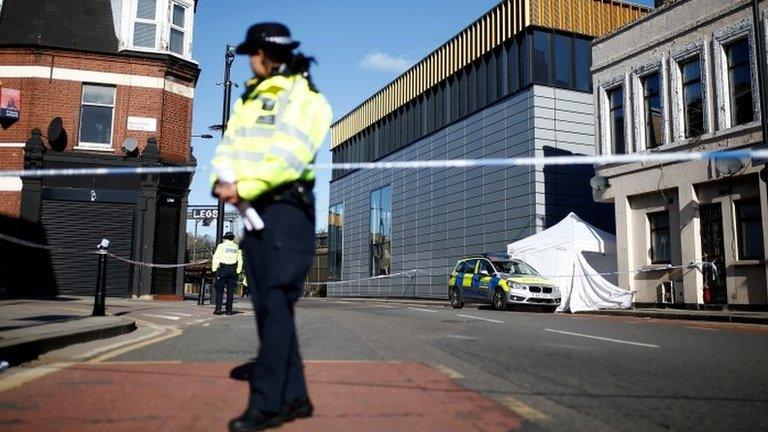
- Published6 April 2018
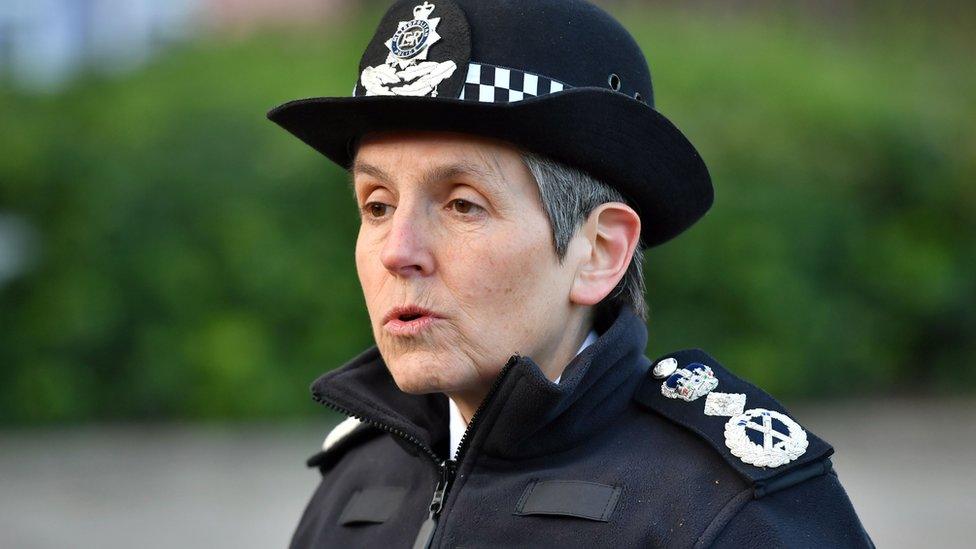
- Published7 April 2018
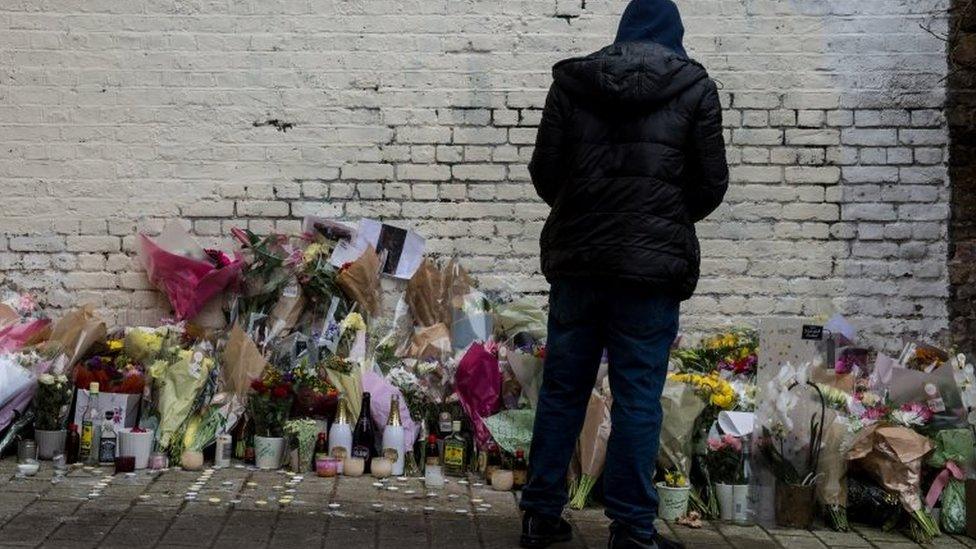
- Published16 April 2018
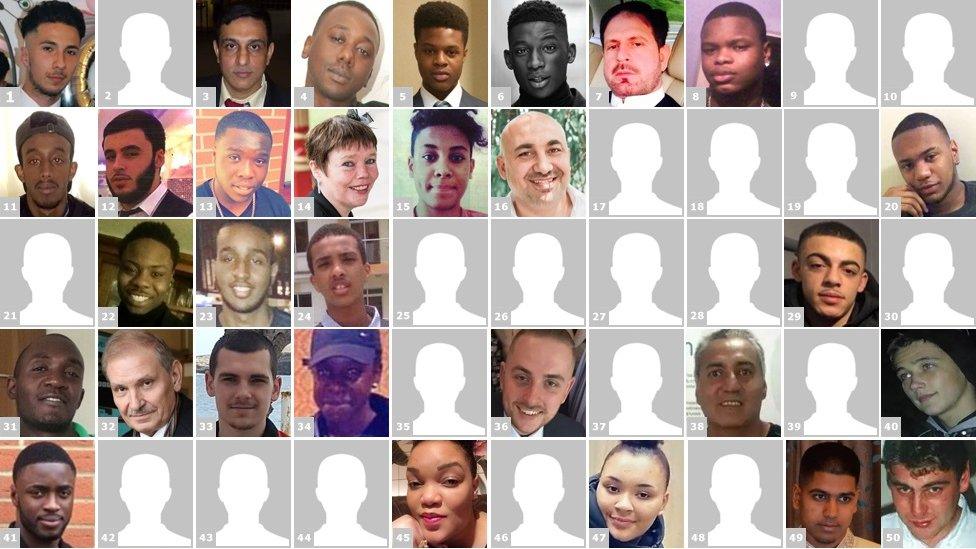
- Published5 April 2018
- Published25 January 2018
